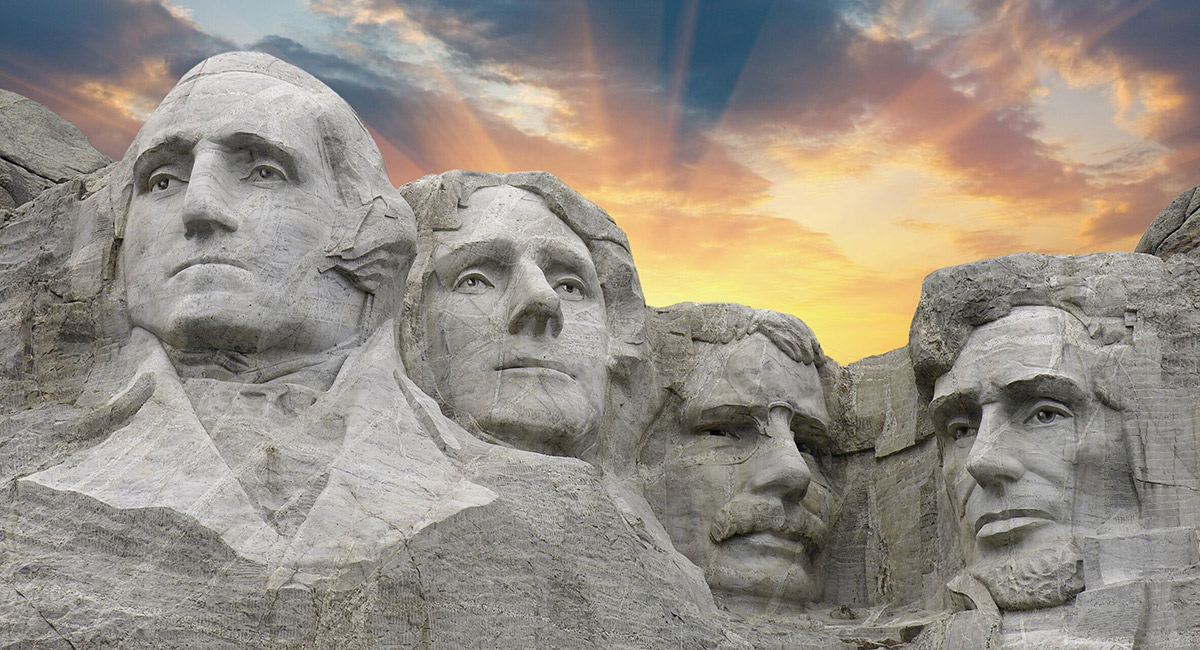“American exceptionalism” isn’t a jingoistic fantasy. For two centuries it’s been based solidly on empirical realities. Output in the new United States in 1776 was perhaps a quarter of that in its mother country, Great Britain. Only a century later, the U.S. was producing more goods than the British, and by its bicentennial in 1976 the U.S. was the world’s premier superpower.
Signs of extraordinary accomplishment were everywhere. The U.S. witnessed the largest sustained in-migration the world had ever known, as people flocked to American shores. There were so many that the nation decided to restrict admission rather severely beginning in the 1920s. U.S. global leadership didn’t come from random luck, superior location or natural resources. Its 20th-century rival, the Soviet Union, had far more people and land and at least as many valuable minerals in 1976.
But fast-forward to 2022, and things don’t look the same. American economic superiority has declined markedly. Polls show that a sizable majority of Americans believe the nation is heading in the wrong direction. Annual output growth has declined considerably (to 2.35% between 2000 and 2020 from 3.93% between 1950 and 1970). America’s enviable reputation for curbing misery, poverty and cruelty—at home and abroad—has eroded, too. The ignominious retreat from Afghanistan is only one example. America doesn’t seem so “exceptional” anymore.
To understand why, let’s consider five relevant factors.
• A sharply declining work ethic. In January 2000, 64.6% of the noninstitutionalized working-age population was employed. By July 2022, that share had fallen to 60%. Had the proportion remained at its 2000 level, the U.S. workforce would have seen 12.1 million new entries—well above the Bureau of Labor Statistics’ estimate of job vacancies today. While the pandemic initially played a role in limiting labor-force participation, the current shortage reflects a different culprit: enormous increases in government payments, such as outsize food-stamp and Medicaid benefits.
• A declining sense of fiscal responsibility. In the nation’s first 140 years, the federal government ran 101 annual budget surpluses and only 39 deficits. That changed with the Keynesian revolution of the 1930s, which has only intensified this century. The gross national debt now exceeds yearly gross domestic product—something previously seen only on rare occasions, such as the period immediately following World War II. The last time the U.S. balanced its budget was 21 years ago, in fiscal 2001. Deficits have since risen under Republican and Democratic presidents. Even more ominous are the underfunded liabilities for Social Security and Medicare, which will impose severe burdens on the next generation of Americans. Rather than address this, the Biden administration has added to the fiscal mayhem by pausing or canceling student-loan obligations.
• A growing disrespect for laws, rules and religious commandments. With some conspicuous exceptions—namely, slavery and segregation—Americans have historically been a rules-abiding people, respecting laws embraced by secular and religious tradition. National peace and prosperity depended in large part on the public’s appreciation for property and human rights. People obeyed financial agreements and considered harming others to be not only illegal but sinful.
In recent decades that conception has become far less widespread. Church membership plummeted to 47% in 2020 from 70% in 1999. The reduction in serious crime beginning in the 1980s has reversed with a vengeance. Large-scale riots break out on the occasion of perceived injustices—such as the use of violence by police—which lead to damaged property, lost lives and enhanced fear and mistrust. “Thou shall not kill” and “thou shall not steal” no longer command the fearful respect they once did.
• A decline in respect for free markets and a rising collectivism that erodes investment and entrepreneurship. It’s no accident that the Industrial Revolution and its aftermath occurred because of the ascendance of thinkers such as Adam Smith and John Locke and inventor-entrepreneurs such as James Watt, Thomas Edison and Steve Jobs. Limits imposed by kings and bishops were displaced by market-provided incentives for entrepreneurs. What Deirdre McCloskey aptly termed the “Great Enrichment”—the onset of extraordinary growth in income beginning in the early 1800s—reached its greatest expression in America. Yet today collectivist governmental power and regulation undermine such entrepreneurial initiatives, from fracking to healthcare.
• A rise in ignorance. Despite having immediate access to more information than their parents could have dreamed of, today’s youth increasingly know less about the world around them. On the 2018 Program for International Student Assessment—an international evaluation in math, science and reading for 15-year-old students—Americans scored lower than their peers in Asian powerhouses such as China and Japan and in European allies from the U.K. to Germany.
American universities are subordinating academic achievement to ideology while constricting free expression—the lifeblood of intellectual advancement and prosperity. Teachers unions restrict competition. Knowledge of the past is particularly spotty as schools either down play or distort the nation’s history. The effect is a decline in patriotism and love of country, which loosens the glue of national unity embodied in the motto E pluribus unum.
Adversity isn’t new to America. George Washington’s army faced it at Valley Forge. Abraham Lincoln confronted it during the Civil War. The nation endured it in the Pearl Harbor and 9/11 attacks. The U.S. has met and overcome perilous challenges before. But to be exceptional again will require reclaiming and practicing what makes America uniquely special. It’ll require a project of rediscovery—of finding something that not so long ago the nation abandoned.













